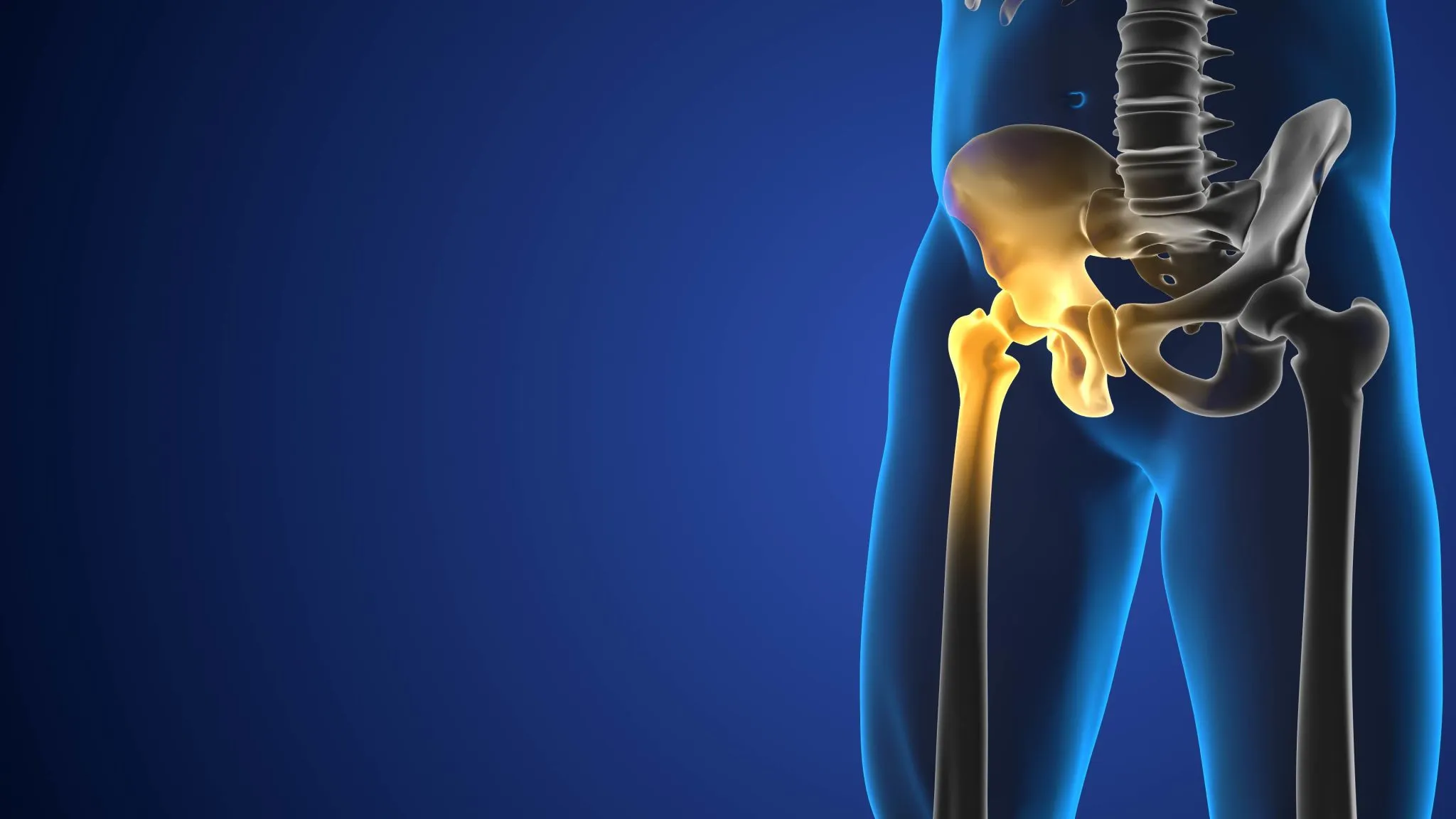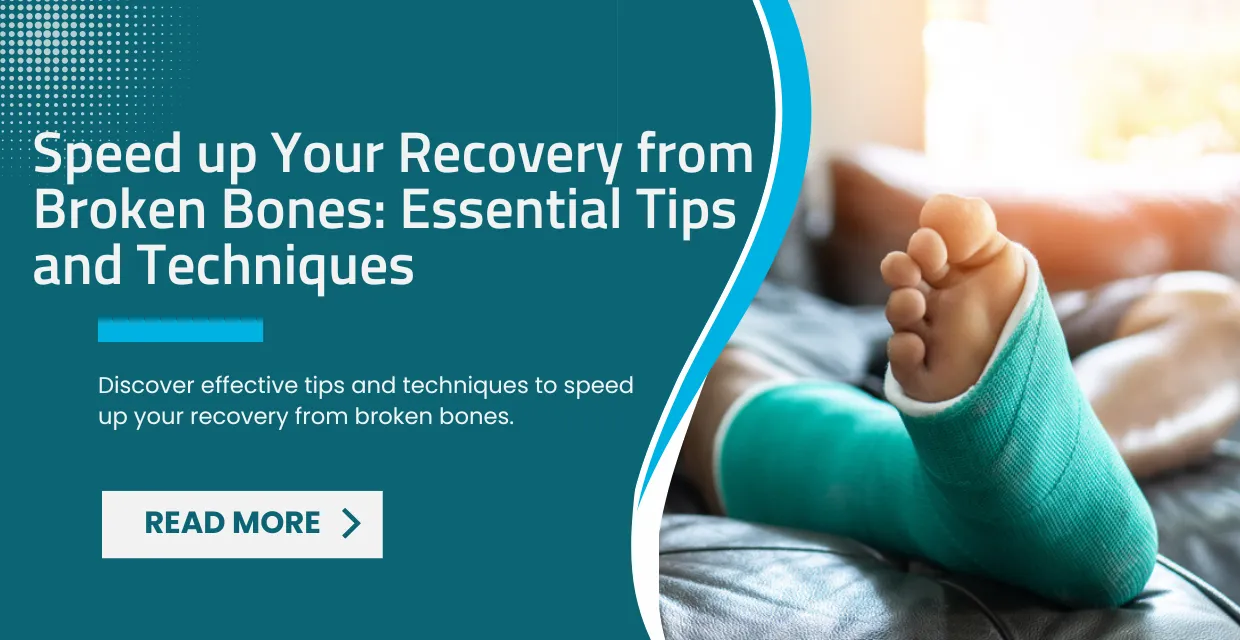Imagine you're a sports enthusiast, giving your all in your favorite game. But suddenly, you break a bone. It's painful and can feel like your world has crumbled. But don't worry! With the right care, you can bounce back stronger than ever. In this article, we'll share some simple tips to help you heal faster, so you can get back to your sport or daily activities quickly.

How do Bones heal?
Before we dive into the tips, let's understand how our bodies naturally heal broken bones. There are three stages:
First, your body gets into action by cleaning the broken area and preparing it for healing.
Next, special cells start creating new bone tissue to connect the broken ends. Think of it like a soft structure that supports the growth of new bone.
Finally, the newly formed bone remodels itself, getting rid of any extra material and returning to its original shape.
Tips for Faster Healing
Now, let's focus on some tips to speed up your recovery:
Talk to a Sports Medicine Expert
Get advice from a healthcare professional who specializes in sports medicine. They can guide you based on your injury and help you recover faster. These experts have in-depth knowledge of sports injuries and understand the unique challenges faced by athletes.
LifeCare Hospitals is renowned for its expertise in sports medicine and has a team of experienced healthcare professionals who specialize in treating sports-related injuries. By choosing LifecCare Hospitals, you can have peace of mind knowing that you are receiving the best care from experts who understand the demands of sports and are dedicated to helping athletes recover and get back in the game.
Use Supports and Keep Still
Proper immobilization and support are crucial for allowing your broken bone to heal correctly. Depending on the type and location of the fracture, your healthcare professional may recommend a cast, splint, brace, or even a surgical procedure such as the insertion of metal plates or screws to stabilize the bone.
Optimal Nutrition for Bone Health
Make sure to eat foods that are good for your bones. Ensure your diet includes a variety of nutrient-rich, such as:
Calcium: Consume dairy products, leafy greens, and fortified products to promote bone strength.
Vitamin D: Enhance calcium absorption by exposing yourself to sunlight or consuming dietary sources like fatty fish, egg yolks, and fortified foods.
Protein: Incorporate lean meats, poultry, fish, beans, and legumes to provide the necessary building blocks for bone tissue repair.
Vitamin C: Consume fruits and vegetables rich in vitamin C, like citrus fruits, berries, and leafy greens, to aid in collagen production.
Omega-3 Fatty Acids: Include fatty fish, flaxseeds, chia seeds, and walnuts in your diet to reduce inflammation and support bone healing.
Stay Active Within Limits
While it's crucial to rest and avoid putting excessive strain on the injured area, engaging in light exercises can promote blood flow, reduce muscle atrophy, and aid in the healing process. Consult your healthcare professional or a physical therapist for suitable exercises that won't hinder your recovery.
Manage Pain and Inflammation
Pain and inflammation often accompany broken bones. Follow your healthcare professional's guidance regarding pain management techniques, such as over-the-counter pain relievers or prescribed medications. Applying ice packs intermittently to the affected area can also help reduce swelling and discomfort.
Patience and Emotional Support
Give Yourself Time
Patience is vital during the healing process. Bones heal at their own pace, and it's essential to give your body the time it needs to recover fully. Rushing the healing process can potentially lead to complications or delays in recovery.
Seek Emotional Support
Dealing with a broken bone can be emotionally challenging. Contact your friends, family, or support groups to share your experience and seek emotional help. Mental well-being is an integral part of the healing process.
Conclusion
Recovering from a broken bone requires patience, commitment, and proper care. By understanding the stages of bone healing and implementing the tips mentioned above, you can support and expedite your recovery journey. Remember to consult a healthcare professional for personalized guidance and follow their recommendations closely. With time, support, and the right approach, you can heal your broken bones faster and regain your strength and mobility.
At LifeCare Hospitals, we prioritize your recovery and provide comprehensive orthopedic care in Kenya. Our experienced healthcare professionals are dedicated to supporting your healing journey and ensuring a swift and successful recovery. Trust LifeCare Hospitals for top orthopedic doctor in Kenya and let us guide you toward a faster road to recovery.



